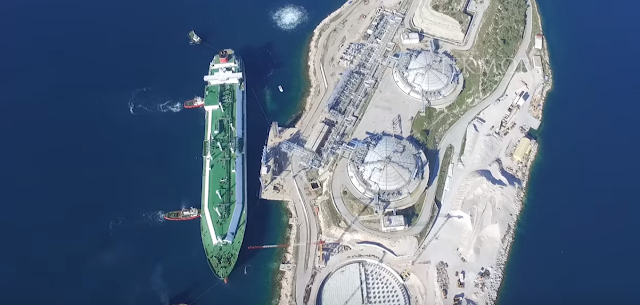
12 SEPT 2018
A third storage tank added to an LNG terminal at Revythoussa, an islet close to Athens, is set for its commercial launch between late October and early November, slightly behind schedule.
The new tank, which promises to increase the facility’s overall capacity to 225,000 cubic meters, almost double its previous size, is currently undergoing test runs.
The facility’s capacity upgrade represents a pivotal development for the LNG terminal, a key asset belonging to DESFA, the natural gas grid operator, whose 66 percent is being privatized. A consortium comprised of Italy’s Snam, Spain’s Enagás Internacional and Belgium’s Fluxys has emerged as the winning bidder with a 535 million-euro offer.
DESFA is already engaged in talks with Greek and foreign firms interested in utilizing the upgraded facility and reserving capacities. They include two US firms, Cheniere and Tellurian, amid initiatives being taken for American gas imports into Greece. Cheniere and Tellurian have enquired about usage fees, capacities, technical details and port capabilities.
All firms interested in utilizing the upgraded LNG terminal at Revythoussa have made clear they are eyeing both the Greek market and the wider region to the north.




